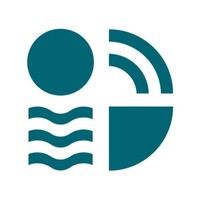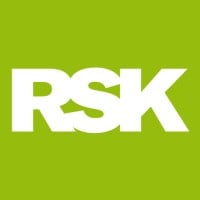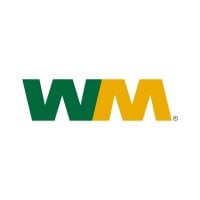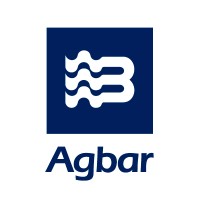
Scottish Environment Protection Agency Company Cyber Security Posture
sepa.org.ukOur purpose is to protect and improve the environment in ways that, as far as possible, also help create health and wellbeing benefits and sustainable economic growth. We are a non-departmental public body, accountable to Scottish Ministers and the Scottish Parliament, and an independent advisor on the environment. We have 1,2512 employees working in 22 offices, giving us a geographical presence across the whole of Scotland, from the Highlands and Islands to the Borders. We regulate and advise on a wide range of environmental activities. We help business and industry to understand and comply with their environmental responsibilities and legislation and have a range of enforcement powers which we can apply to ensure that regulations are complied with. We take tens of thousands of samples every year from land, water and air, analysing them in the field and in our laboratories to help assess the quality of our environment. Our services include: monitoring and reporting on the state of our environment, working with partners to promote sustainable resource use, environmental regulation, responding to environmental emergencies and providing a range of public warning systems, including our flood warning and guidance service and bathing water quality forecasts. We also operate the Radioactive Incident Monitoring Network and the Airborne Hazards Emergency Response service. We recognise the context we are working in as an environment protection agency is changing. A fundamental challenge for the 21st century is the over-use of resources and the need to find ways to create social and economic success within planetary constraints. For us, one example of this changing context is that whilst there are still compliance challenges, many of those we regulate are increasingly recognising the value of going beyond compliance. They recognise the positive outcomes that this can bring not just to the environment but to their business and the communities they operate in.
SEPA Company Details
scottish-environment-protection-agency
864 employees
25823.0
541
Environmental Services
sepa.org.uk
Scan still pending
SCO_2606128
In-progress
Between 900 and 1000
This score is AI-generated and less favored by cyber insurers, who prefer the TPRM score.
 SEPA Global Score
SEPA Global Score.png)

Scottish Environment Protection Agency Company Scoring based on AI Models
| Model Name | Date | Description | Current Score Difference | Score |
|---|---|---|---|---|
| AVERAGE-Industry | 03-12-2025 | This score represents the average cybersecurity rating of companies already scanned within the same industry. It provides a benchmark to compare an individual company's security posture against its industry peers. | N/A | Between 900 and 1000 |
Scottish Environment Protection Agency Company Cyber Security News & History
| Entity | Type | Severity | Impact | Seen | Url ID | Details | View |
|---|---|---|---|---|---|---|---|
| Scottish Environment Protection Agency | Cyber Attack | 100 | 5 | 12/2020 | SCO058121122 | Link | |
Rankiteo Explanation : Attack threatening the organization's existenceDescription: The Scottish Environment Protection Agency (Sepa) has been targeted in a cyberattack. The agency was subjected to a significant cyberattack in the early hours of Christmas Eve. While core regulatory, monitoring, flood forecasting and warning services continued, communication into and across the organization was significantly impacted. | |||||||
| Scottish Environment Protection Agency | Ransomware | 100 | 5 | 12/2020 | SCO205121222 | Link | |
Rankiteo Explanation : Attack threatening the organization's existenceDescription: Scottish Environmental Protection Agency (SEPA) was affected by ransomware on Christmas Eve 2020 which knocked out a number of key systems offline and exposed data to the attackers. The attackers stole about 1.2GB of data regarding a number of business areas from their systems and leaked some of the information online. SEPA immediately isolated the affected systems and cybersecurity specialists were called to investigate and contain the incident. | |||||||
Scottish Environment Protection Agency Company Subsidiaries

Our purpose is to protect and improve the environment in ways that, as far as possible, also help create health and wellbeing benefits and sustainable economic growth. We are a non-departmental public body, accountable to Scottish Ministers and the Scottish Parliament, and an independent advisor on the environment. We have 1,2512 employees working in 22 offices, giving us a geographical presence across the whole of Scotland, from the Highlands and Islands to the Borders. We regulate and advise on a wide range of environmental activities. We help business and industry to understand and comply with their environmental responsibilities and legislation and have a range of enforcement powers which we can apply to ensure that regulations are complied with. We take tens of thousands of samples every year from land, water and air, analysing them in the field and in our laboratories to help assess the quality of our environment. Our services include: monitoring and reporting on the state of our environment, working with partners to promote sustainable resource use, environmental regulation, responding to environmental emergencies and providing a range of public warning systems, including our flood warning and guidance service and bathing water quality forecasts. We also operate the Radioactive Incident Monitoring Network and the Airborne Hazards Emergency Response service. We recognise the context we are working in as an environment protection agency is changing. A fundamental challenge for the 21st century is the over-use of resources and the need to find ways to create social and economic success within planetary constraints. For us, one example of this changing context is that whilst there are still compliance challenges, many of those we regulate are increasingly recognising the value of going beyond compliance. They recognise the positive outcomes that this can bring not just to the environment but to their business and the communities they operate in.
Access Data Using Our API

Get company history
.png)
SEPA Cyber Security News
When every minute counts
When you are dealing with a serious incident, every minute counts and the way in which you respond in those initial stages dictates how successful or otherwise ...
Scotland environmental regulator hit by ‘ongoing’ ransomware attack
SEPA confirms ongoing ransomware attack likely to be by international serious and organised cyber-crime groups intent on disrupting public services and ...
SEPA continues to count cost of cyber-attack
The full financial impact of a cyber-attack on Scotland's environmental agency is still not clear, and the incident remains a warning to other ...
Royal Bank of Scotland owner targeted by 100 million cyber-attacks per month, MSPs told
The company blocks around a third of all the emails it receives because 'they are believed to be the start of an attack' against its staff.
Over 200 legacy systems identified in national audit highlighting ‘severe and advancing’ cybersecurity threat to UK government services
More than 200 legacy systems identified in a national cyber audit highlighting the 'severe and advancing' threat to UK government services.
'Human error' let cyber criminals hack Sepa's systems with £42m unaccounted for
SCOTLAND'S auditor general has revealed that a huge cyber attack on the Scottish Environmental Protection Agency (Sepa) was carried out after “ ...
Ransomware Attackers Publish 4K Private Scottish Gov Agency Files
The incident also points to ransomware actors evolving from previously destroying critical data or bringing companies' services and operations ...
Full cost of 2020 cyber attack on Sepa still not known
A suspected phishing attack in 2020 has cost Scotland's environmental regulator millions of pounds.
Environmental agency SEPA hit by ransomware attack since Christmas Eve
The cyber security attack which has been going on since Christmas Eve resulted in the theft of 1.2GB of data. A dedicated data loss support ...

SEPA Similar Companies

Dalkia
Dalkia : ensemble, relevons le défi climatique ! Depuis 85 ans, Dalkia, filiale du groupe EDF et leader dans les services énergétiques, investit et développe les énergies renouvelables et de récupération et accompagne ses clients dans la durée pour les aider à faire des économies d'énergie et à rédu

SAUR
As a pure player in water and essential services, Saur works to protect the environment in the heart of the territories it serves. Saur has always acted to offer the same quality of service to small towns as to large cities, guided by its mission: to restore to water the value it deserves. Saur wo

RSK Group
RSK is a global leader in the delivery of sustainable solutions. Working in engineering and technical services, we work in sectors crucially linked to future global sustainability such as water, energy, food and drink, infrastructure, urban development, mining and waste. Our RSK family consists of

WM
WM is North America's leading provider of integrated environmental solutions. We partner with our customers and communities to manage and reduce waste from collection to disposal while recovering valuable resources and creating clean, renewable energy. We are on a quest for environmental performance

AGBAR
With more than 150 years of experience, at Agbar we continue to anticipate and adapt to respond to the needs of our environment, with the aim of improving people's quality of life. With the strength of alliances, we promote innovative solutions for the sustainable management of water and the enviro

Grupo Tragsa
Tragsa Group is a group of public companies, integrated in the State Industrial Ownership Corporation (SEPI), which has become a full service supplier and a reference company to Public Administrations. It is formed by four enterprises: Tragsa (1977) responsible for works and services' execution and

Frequently Asked Questions (FAQ) on Cybersecurity Incidents
SEPA CyberSecurity History Information
Total Incidents: According to Rankiteo, SEPA has faced 2 incidents in the past.
Incident Types: The types of cybersecurity incidents that have occurred include ['Cyber Attack', 'Ransomware'].
Total Financial Loss: The total financial loss from these incidents is estimated to be {total_financial_loss}.
Cybersecurity Posture: The company's overall cybersecurity posture is described as Our purpose is to protect and improve the environment in ways that, as far as possible, also help create health and wellbeing benefits and sustainable economic growth. We are a non-departmental public body, accountable to Scottish Ministers and the Scottish Parliament, and an independent advisor on the environment. We have 1,2512 employees working in 22 offices, giving us a geographical presence across the whole of Scotland, from the Highlands and Islands to the Borders. We regulate and advise on a wide range of environmental activities. We help business and industry to understand and comply with their environmental responsibilities and legislation and have a range of enforcement powers which we can apply to ensure that regulations are complied with. We take tens of thousands of samples every year from land, water and air, analysing them in the field and in our laboratories to help assess the quality of our environment. Our services include: monitoring and reporting on the state of our environment, working with partners to promote sustainable resource use, environmental regulation, responding to environmental emergencies and providing a range of public warning systems, including our flood warning and guidance service and bathing water quality forecasts. We also operate the Radioactive Incident Monitoring Network and the Airborne Hazards Emergency Response service. We recognise the context we are working in as an environment protection agency is changing. A fundamental challenge for the 21st century is the over-use of resources and the need to find ways to create social and economic success within planetary constraints. For us, one example of this changing context is that whilst there are still compliance challenges, many of those we regulate are increasingly recognising the value of going beyond compliance. They recognise the positive outcomes that this can bring not just to the environment but to their business and the communities they operate in..
Detection and Response: The company detects and responds to cybersecurity incidents through {description_of_detection_and_response_process}.
Incident Details
Incident 1: Ransomware Attack
Title: {Incident_Title}
Description: {Brief_description_of_the_incident}
Date Detected: {Detection_Date}
Date Publicly Disclosed: {Disclosure_Date}
Date Resolved: {Resolution_Date}
Type: {Type_of_Attack}
Attack Vector: {Attack_Vector}
Vulnerability Exploited: {Vulnerability}
Threat Actor: {Threat_Actor}
Motivation: {Motivation}
Incident 2: Data Breach
Title: {Incident_Title}
Description: {Brief_description_of_the_incident}
Date Detected: {Detection_Date}
Date Publicly Disclosed: {Disclosure_Date}
Date Resolved: {Resolution_Date}
Type: {Type_of_Attack}
Attack Vector: {Attack_Vector}
Vulnerability Exploited: {Vulnerability}
Threat Actor: {Threat_Actor}
Motivation: {Motivation}
Common Attack Types: As of now, the company has not encountered any reported incidents involving common cyberattacks.
Identification of Attack Vectors: The company identifies the attack vectors used in incidents through {description_of_identification_process}.
Impact of the Incidents
Incident 1: Ransomware Attack
Financial Loss: {Financial_Loss}
Data Compromised: {Data_Compromised}
Systems Affected: {Systems_Affected}
Downtime: {Downtime}
Operational Impact: {Operational_Impact}
Conversion Rate Impact: {Conversion_Rate_Impact}
Revenue Loss: {Revenue_Loss}
Customer Complaints: {Customer_Complaints}
Brand Reputation Impact: {Brand_Reputation_Impact}
Legal Liabilities: {Legal_Liabilities}
Identity Theft Risk: {Identity_Theft_Risk}
Payment Information Risk: {Payment_Information_Risk}
Incident 2: Data Breach
Financial Loss: {Financial_Loss}
Data Compromised: {Data_Compromised}
Systems Affected: {Systems_Affected}
Downtime: {Downtime}
Operational Impact: {Operational_Impact}
Conversion Rate Impact: {Conversion_Rate_Impact}
Revenue Loss: {Revenue_Loss}
Customer Complaints: {Customer_Complaints}
Brand Reputation Impact: {Brand_Reputation_Impact}
Legal Liabilities: {Legal_Liabilities}
Identity Theft Risk: {Identity_Theft_Risk}
Payment Information Risk: {Payment_Information_Risk}
Average Financial Loss: The average financial loss per incident is {average_financial_loss}.
Commonly Compromised Data Types: The types of data most commonly compromised in incidents are {list_of_commonly_compromised_data_types}.
Incident 1: Ransomware Attack
Entity Name: {Entity_Name}
Entity Type: {Entity_Type}
Industry: {Industry}
Location: {Location}
Size: {Size}
Customers Affected: {Customers_Affected}
Incident 2: Data Breach
Entity Name: {Entity_Name}
Entity Type: {Entity_Type}
Industry: {Industry}
Location: {Location}
Size: {Size}
Customers Affected: {Customers_Affected}
Response to the Incidents
Incident 1: Ransomware Attack
Incident Response Plan Activated: {Yes/No}
Third Party Assistance: {Yes/No}
Law Enforcement Notified: {Yes/No}
Containment Measures: {Containment_Measures}
Remediation Measures: {Remediation_Measures}
Recovery Measures: {Recovery_Measures}
Communication Strategy: {Communication_Strategy}
Adaptive Behavioral WAF: {Adaptive_Behavioral_WAF}
On-Demand Scrubbing Services: {On_Demand_Scrubbing_Services}
Network Segmentation: {Network_Segmentation}
Enhanced Monitoring: {Enhanced_Monitoring}
Incident 2: Data Breach
Incident Response Plan Activated: {Yes/No}
Third Party Assistance: {Yes/No}
Law Enforcement Notified: {Yes/No}
Containment Measures: {Containment_Measures}
Remediation Measures: {Remediation_Measures}
Recovery Measures: {Recovery_Measures}
Communication Strategy: {Communication_Strategy}
Adaptive Behavioral WAF: {Adaptive_Behavioral_WAF}
On-Demand Scrubbing Services: {On_Demand_Scrubbing_Services}
Network Segmentation: {Network_Segmentation}
Enhanced Monitoring: {Enhanced_Monitoring}
Incident Response Plan: The company's incident response plan is described as {description_of_incident_response_plan}.
Third-Party Assistance: The company involves third-party assistance in incident response through {description_of_third_party_involvement}.
Data Breach Information
Incident 2: Data Breach
Type of Data Compromised: {Type_of_Data}
Number of Records Exposed: {Number_of_Records}
Sensitivity of Data: {Sensitivity_of_Data}
Data Exfiltration: {Yes/No}
Data Encryption: {Yes/No}
File Types Exposed: {File_Types}
Personally Identifiable Information: {Yes/No}
Prevention of Data Exfiltration: The company takes the following measures to prevent data exfiltration: {description_of_prevention_measures}.
Handling of PII Incidents: The company handles incidents involving personally identifiable information (PII) through {description_of_handling_process}.
Ransomware Information
Incident 1: Ransomware Attack
Ransom Demanded: {Ransom_Amount}
Ransom Paid: {Ransom_Paid}
Ransomware Strain: {Ransomware_Strain}
Data Encryption: {Yes/No}
Data Exfiltration: {Yes/No}
Ransom Payment Policy: The company's policy on paying ransoms in ransomware incidents is described as {description_of_ransom_payment_policy}.
Data Recovery from Ransomware: The company recovers data encrypted by ransomware through {description_of_data_recovery_process}.
Regulatory Compliance
Incident 1: Ransomware Attack
Regulations Violated: {Regulations_Violated}
Fines Imposed: {Fines_Imposed}
Legal Actions: {Legal_Actions}
Regulatory Notifications: {Regulatory_Notifications}
Incident 2: Data Breach
Regulations Violated: {Regulations_Violated}
Fines Imposed: {Fines_Imposed}
Legal Actions: {Legal_Actions}
Regulatory Notifications: {Regulatory_Notifications}
Regulatory Frameworks: The company complies with the following regulatory frameworks regarding cybersecurity: {list_of_regulatory_frameworks}.
Ensuring Regulatory Compliance: The company ensures compliance with regulatory requirements through {description_of_compliance_measures}.
Lessons Learned and Recommendations
Incident 1: Ransomware Attack
Lessons Learned: {Lessons_Learned}
Incident 2: Data Breach
Lessons Learned: {Lessons_Learned}
Incident 1: Ransomware Attack
Recommendations: {Recommendations}
Incident 2: Data Breach
Recommendations: {Recommendations}
Key Lessons Learned: The key lessons learned from past incidents are {list_of_key_lessons_learned}.
Implemented Recommendations: The company has implemented the following recommendations to improve cybersecurity: {list_of_implemented_recommendations}.
References
Additional Resources: Stakeholders can find additional resources on cybersecurity best practices at {list_of_additional_resources}.
Investigation Status
Incident 1: Ransomware Attack
Investigation Status: {Investigation_Status}
Incident 2: Data Breach
Investigation Status: {Investigation_Status}
Communication of Investigation Status: The company communicates the status of incident investigations to stakeholders through {description_of_communication_process}.
Stakeholder and Customer Advisories
Incident 1: Ransomware Attack
Stakeholder Advisories: {Stakeholder_Advisories}
Customer Advisories: {Customer_Advisories}
Incident 2: Data Breach
Stakeholder Advisories: {Stakeholder_Advisories}
Customer Advisories: {Customer_Advisories}
Advisories Provided: The company provides the following advisories to stakeholders and customers following an incident: {description_of_advisories_provided}.
Initial Access Broker
Incident 1: Ransomware Attack
Entry Point: {Entry_Point}
Reconnaissance Period: {Reconnaissance_Period}
Backdoors Established: {Backdoors_Established}
High Value Targets: {High_Value_Targets}
Data Sold on Dark Web: {Yes/No}
Incident 2: Data Breach
Entry Point: {Entry_Point}
Reconnaissance Period: {Reconnaissance_Period}
Backdoors Established: {Backdoors_Established}
High Value Targets: {High_Value_Targets}
Data Sold on Dark Web: {Yes/No}
Monitoring and Mitigation of Initial Access Brokers: The company monitors and mitigates the activities of initial access brokers through {description_of_monitoring_and_mitigation_measures}.
Post-Incident Analysis
Incident 1: Ransomware Attack
Root Causes: {Root_Causes}
Corrective Actions: {Corrective_Actions}
Incident 2: Data Breach
Root Causes: {Root_Causes}
Corrective Actions: {Corrective_Actions}
Post-Incident Analysis Process: The company's process for conducting post-incident analysis is described as {description_of_post_incident_analysis_process}.
Corrective Actions Taken: The company has taken the following corrective actions based on post-incident analysis: {list_of_corrective_actions_taken}.
Additional Questions
General Information
Ransom Payment History: The company has {paid/not_paid} ransoms in the past.
Last Ransom Demanded: The amount of the last ransom demanded was {last_ransom_amount}.
Last Attacking Group: The attacking group in the last incident was {last_attacking_group}.
Incident Details
Most Recent Incident Detected: The most recent incident detected was on {most_recent_incident_detected_date}.
Most Recent Incident Publicly Disclosed: The most recent incident publicly disclosed was on {most_recent_incident_publicly_disclosed_date}.
Most Recent Incident Resolved: The most recent incident resolved was on {most_recent_incident_resolved_date}.
Impact of the Incidents
Highest Financial Loss: The highest financial loss from an incident was {highest_financial_loss}.
Most Significant Data Compromised: The most significant data compromised in an incident was {most_significant_data_compromised}.
Most Significant System Affected: The most significant system affected in an incident was {most_significant_system_affected}.
Response to the Incidents
Third-Party Assistance in Most Recent Incident: The third-party assistance involved in the most recent incident was {third_party_assistance_in_most_recent_incident}.
Containment Measures in Most Recent Incident: The containment measures taken in the most recent incident were {containment_measures_in_most_recent_incident}.
Data Breach Information
Most Sensitive Data Compromised: The most sensitive data compromised in a breach was {most_sensitive_data_compromised}.
Number of Records Exposed: The number of records exposed in the most significant breach was {number_of_records_exposed}.
Ransomware Information
Highest Ransom Demanded: The highest ransom demanded in a ransomware incident was {highest_ransom_demanded}.
Highest Ransom Paid: The highest ransom paid in a ransomware incident was {highest_ransom_paid}.
Regulatory Compliance
Highest Fine Imposed: The highest fine imposed for a regulatory violation was {highest_fine_imposed}.
Most Significant Legal Action: The most significant legal action taken for a regulatory violation was {most_significant_legal_action}.
Lessons Learned and Recommendations
Most Significant Lesson Learned: The most significant lesson learned from past incidents was {most_significant_lesson_learned}.
Most Significant Recommendation Implemented: The most significant recommendation implemented to improve cybersecurity was {most_significant_recommendation_implemented}.
References
Most Recent Source: The most recent source of information about an incident is {most_recent_source}.
Most Recent URL for Additional Resources: The most recent URL for additional resources on cybersecurity best practices is {most_recent_url}.
Investigation Status
Current Status of Most Recent Investigation: The current status of the most recent investigation is {current_status_of_most_recent_investigation}.
Stakeholder and Customer Advisories
Most Recent Stakeholder Advisory: The most recent stakeholder advisory issued was {most_recent_stakeholder_advisory}.
Most Recent Customer Advisory: The most recent customer advisory issued was {most_recent_customer_advisory}.
Initial Access Broker
Most Recent Entry Point: The most recent entry point used by an initial access broker was {most_recent_entry_point}.
Most Recent Reconnaissance Period: The most recent reconnaissance period for an incident was {most_recent_reconnaissance_period}.
Post-Incident Analysis
Most Significant Root Cause: The most significant root cause identified in post-incident analysis was {most_significant_root_cause}.
Most Significant Corrective Action: The most significant corrective action taken based on post-incident analysis was {most_significant_corrective_action}.
What Do We Measure?
















Every week, Rankiteo analyzes billions of signals to give organizations a sharper, faster view of emerging risks. With deeper, more actionable intelligence at their fingertips, security teams can outpace threat actors, respond instantly to Zero-Day attacks, and dramatically shrink their risk exposure window.
These are some of the factors we use to calculate the overall score:
Identify exposed access points, detect misconfigured SSL certificates, and uncover vulnerabilities across the network infrastructure.
Gain visibility into the software components used within an organization to detect vulnerabilities, manage risk, and ensure supply chain security.
Monitor and manage all IT assets and their configurations to ensure accurate, real-time visibility across the company's technology environment.
Leverage real-time insights on active threats, malware campaigns, and emerging vulnerabilities to proactively defend against evolving cyberattacks.




